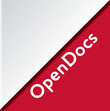Fintech and Tax in Sub-Saharan Africa: Taxation Versus Financial Inclusion

Date
24-08-24Author
Mader, Philip
Duvendack, Maren
Macdonald, Keir
Metadata
Show full item recordImpact
Abstract
The rise of digital financial services has attracted growing attention from governments in Sub-Saharan Africa seeking to raise tax revenue. In the context of global concerns around how governments can tax the digital economy and fintech, we evaluate recent debates over mobile money taxation in Africa as fundamentally political, rather than technical matters. We assess in depth three such debates, in Kenya, Uganda and Malawi. In doing so, we draw on a critical reading of recent political economy literature on taxation, state-business relations, and the ambiguity of financial inclusion. Our research highlights how political questions about tax materialize as technical ones, how governments’ tax bargaining is influenced by business interests, and how the ambiguity of financial inclusion allows qualms over adverse effects on financial services to frustrate and supersede other policy concerns.
Citation
Mader, P.; Duvendack, M. and Macdonald, K. (2022) Fintech and Tax in Sub-Saharan Africa: Taxation Versus Financial Inclusion, Journal of Cultural Economy, 15:4, 488-507, DOI: 10.1080/17530350.2022.2087718DOI
10.1080/17530350.2022.2087718Is part of series
Journal of Cultural Economy;15Rights holder
© 2022 The Author(s). Published by Informa UK Limited, trading as Taylor & Francis GroupRights details
https://www.ids.ac.uk/wp-content/uploads/2021/05/Latest_IDSOpenDocs_ExternalDocuments2020.pdfCollections
- IDS Research [1671]
